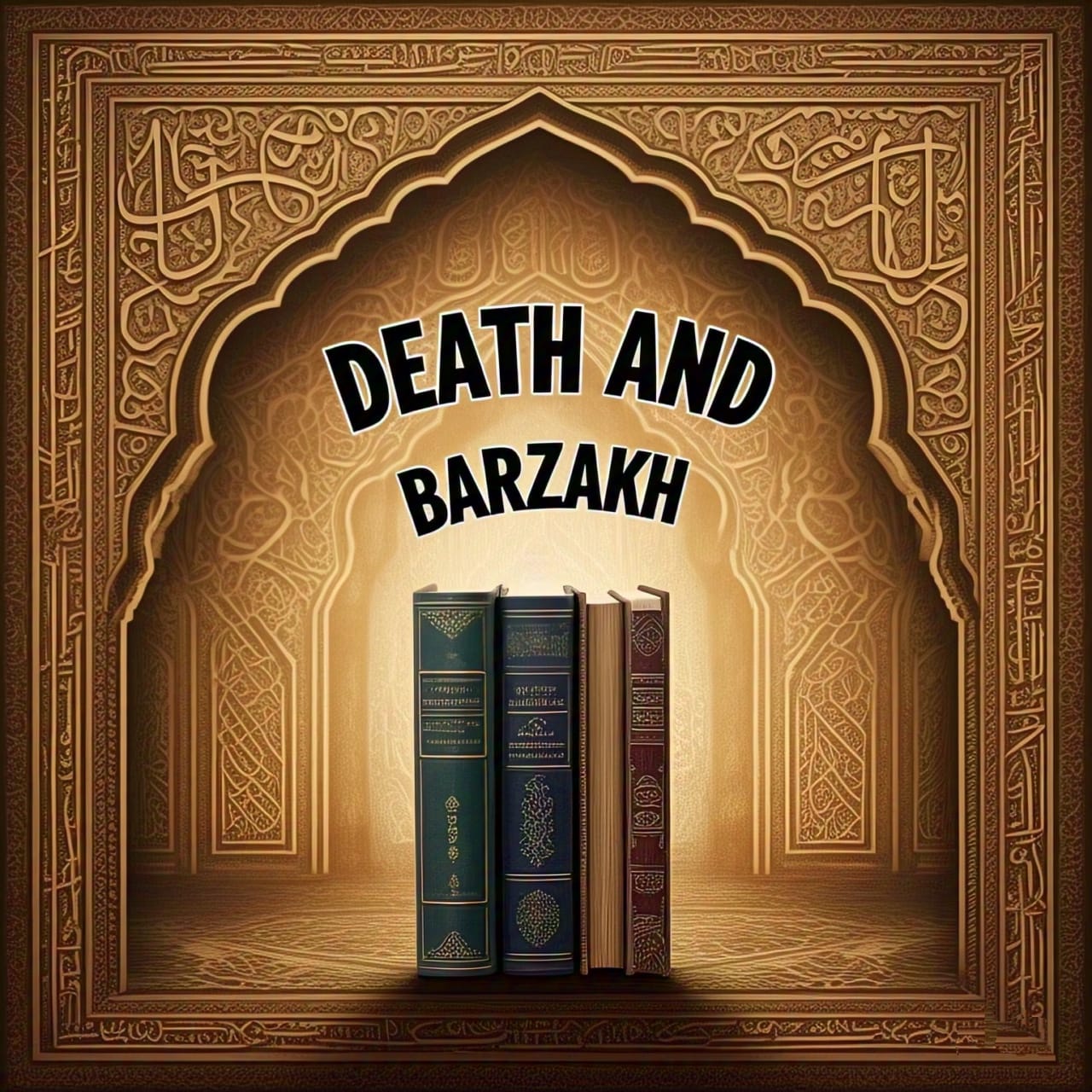The Concept of Death and Barzakh
The Concept of Death and Barzakh
From the Islamic perspective, death is not seen as an end but as a transition from the material world (Dunya) to the spiritual realm. It marks the beginning of a journey that leads to the ultimate meeting with the Lord. One of the significant stages of this journey is Barzakh, often referred to as the intermediary realm or purgatory, where the soul resides between death and the Day of Judgment.
Death: A Transition, Not an End
In Islamic belief, death is the separation of the soul from the body. The Qur'an describes it as a return to God:
"Every soul will taste death. Then to Us will you be returned."
(Surah Al-Ankabut, 29:57)
This return is not annihilation but a continuation of existence in a different form. The soul, which is eternal, departs from the physical body and begins its journey in the spiritual realms. The process of death is facilitated by the Angel of Death (Malak al-Mawt), who takes the soul with Allah’s permission.
For the pious, death is described as a gateway to eternal peace and joy, while for the sinful, it is a moment of reckoning. Imam Ali (peace be upon him) beautifully encapsulates this in Nahjul Balagha:
"For the God-conscious, death is a source of joy, while for the heedless, it is a cause of grief."
Barzakh: The Intermediary Realm
Barzakh is mentioned in the Qur'an:
"And behind them is a barrier (Barzakh) until the Day they are resurrected."
(Surah Al-Mu’minun, 23:100)
This realm is the period between death and resurrection, where the soul exists in a state corresponding to its deeds in the worldly life.
Nature of Barzakh
- Barzakh is a realm of spiritual existence: The body remains in the grave, but the soul experiences either comfort or discomfort based on its earthly actions.
- For the virtuous, Barzakh is a garden of bliss, while for the sinful, it is a prelude to torment.
Imam Jafar al-Sadiq (peace be upon him) explains:
"Barzakh is the period of the grave. It could either be a garden of Paradise or a pit of Hellfire."
The Questioning in the Grave
According to traditions, after burial, the deceased is visited by two angels, Munkar and Nakir, who question the soul about its faith and deeds. The most important questions are:
- Who is your Lord?
- The deceased is expected to affirm their belief in Allah as their Lord.
- What is your religion?
- The deceased should respond that their religion is Islam.
- Who is your prophet?
- The deceased should acknowledge Muhammad as their prophet.
- What is your holy book?
- The deceased should acknowledge that the Qur'an is their book.
- Who is your Imam (Divine leader)?
- The deceased should acknowledge Imam Ali as their first Imam, followed by the 11 Imams after him.
The ability to answer these questions correctly depends on the individual’s faith and actions during their lifetime. For the righteous, the grave becomes spacious and peaceful. For the sinful, it becomes narrow and filled with torment.
Barzakh as a Reflection of Earthly Deeds
The state of the soul in Barzakh reflects its actions in the worldly life:
- The Virtuous: Those who lived a life of piety and righteousness will experience a foretaste of the eternal bliss of Paradise. The soul of the believer is said to receive visits from the Ahlul Bayt (peace be upon them), who provide comfort and guidance.
- The Sinful: For those who committed grave sins without repentance, Barzakh serves as a place of purification or punishment, preparing them for the final judgment.
Actions That Benefit the Soul in Barzakh
Even after death, certain deeds and acts of kindness continue to benefit the soul:
- Charity (Sadaqah Jariyah): On-going charitable acts, such as building a mosque or supporting education.
- Knowledge Shared: Teaching beneficial knowledge that continues to impact others.
- Righteous Offspring: The prayers of children for their deceased parents.
The Prophet Muhammad (peace be upon him and his progeny) said:
"When a man dies, his deeds come to an end except for three: on-going charity, beneficial knowledge, or a righteous child who prays for him."
(Sahih Muslim)
Conclusion
The concepts of death and Barzakh emphasize accountability, preparation, and the eternal consequences of one’s earthly actions. Barzakh serves as a critical phase, reflecting the soul’s moral and spiritual state, and acts as a prelude to the ultimate judgment. Through faith, righteous deeds, and a strong connection to Allah and the Ahlul Bayt (peace be upon them), one can aspire to peace and reward in this intermediary realm and beyond.











